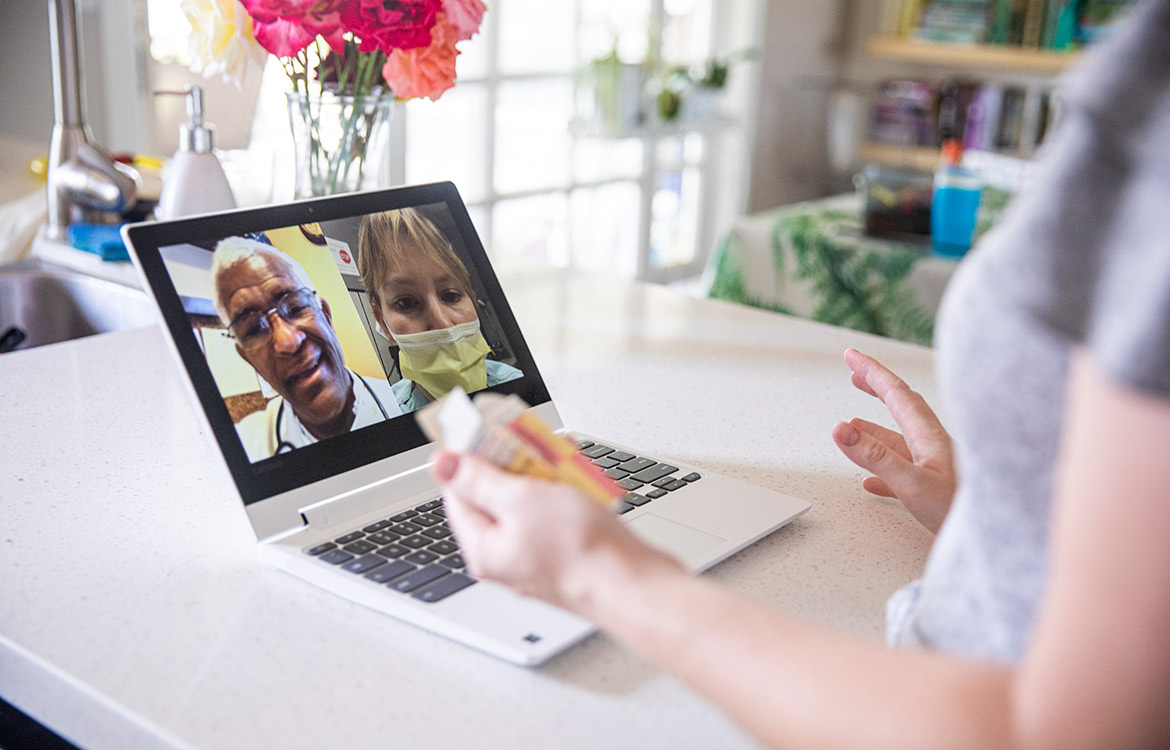Alcohol & Medication: What You Should Know

Does Alcohol Affect Medication?
You’ve read the warning on your prescription bottle or over-the-counter medicine countless times: “Do Not Drink Alcohol With This Drug.” Chances are, you’ve ignored that warning countless times.
Did we guess right? If so, you’re in good company – especially if you’re an older adult. While we don’t know exactly how many people ages 65+ drink while taking medication, we do know that around 40 to 50 percent of older adults drink and more than 90 percent of older adults take medication.
The Risks of Drinking Alcohol While on Medicine
Many potential side effects can occur when you mix medicine and alcohol. In some cases, you might not realize the way you feel is a result of a drug interaction. Relatively mild side effects include:
- Stomach upset
- Nausea
- Headaches
- Mood swings
Of course, drug-alcohol interaction can sometimes be serious. Mixing opioid painkillers with alcohol can dramatically slow your breathing rate. Mixing antidepressants with alcohol can make these drugs less effective. Other major drug-alcohol interactions include:
- Heart problems
- Stroke
- Internal bleeding
- Liver damage
Older adults may be more susceptible to these side effects. For one, aging makes our brains more sensitive to the combined effects of alcohol and medications. Also, older adults tend to take more medications that could react with alcohol.
Common Drugs That React With Alcohol
In a perfect world, you’d follow all rules designed to keep you healthy and safe. In the real world, you do the best you can. If that means you choose to have a drink when taking medicine, then you should be aware of important drug-alcohol interactions.
Here are 10 conditions, a small selection of their treatments, and a few potential alcohol interactions. You can find a detailed list of medications and their interactions with alcohol on the National Institute on Alcohol Abuse and Alcoholism website. And if you have any questions about the safety of having an occasional drink with the medications you take, always check with your MDVIP-affiliated doctor.
| Condition | Medication | Possible Interactions |
| Angina, coronary artery disease | Isordil (nitroglycerin) | Rapid heartbeat, sudden changes in blood pressure, dizziness, fainting |
| Anxiety | Klonopin (clonazepam), Paxil (paroxetine), Xanax (alprazolam) | Drowsiness, dizziness, slowed or difficulty breathing, impaired motor control |
| Arthritis | Naprosyn (naproxen), Voltaren (diclofenac) | Ulcers, stomach bleeding, liver damage |
| Blood clots | Coumadin (warfarin) | Heavier drinking may cause bleeding or the opposite: blood clots |
| Diabetes | Glucophage (metformin), Glynase, DiaBeta, Micronase (glyburide) | Abnormally low blood sugar, flushing reaction |
| Enlarged prostate | Flomax (tamsulosin) | Dizziness, fainting |
| High blood pressure | Cozaar (losartan), Lotensin (benzapril) | Dizziness, fainting, irregular heartbeat (arrhythmia) |
| High cholesterol | Altacor (lovastatin), Crestor (rosuvastatin) | Liver damage |
| Severe pain | Percocet (oxycodone), Viocodin (hydrocodone) | Increased risk for overdose, slowed or difficulty breathing, memory problems |
| Sleep problems | Ambien (zolpidem), Lunesta (eszopiclone) | Dizziness, slowed or difficulty breathing, memory problems |